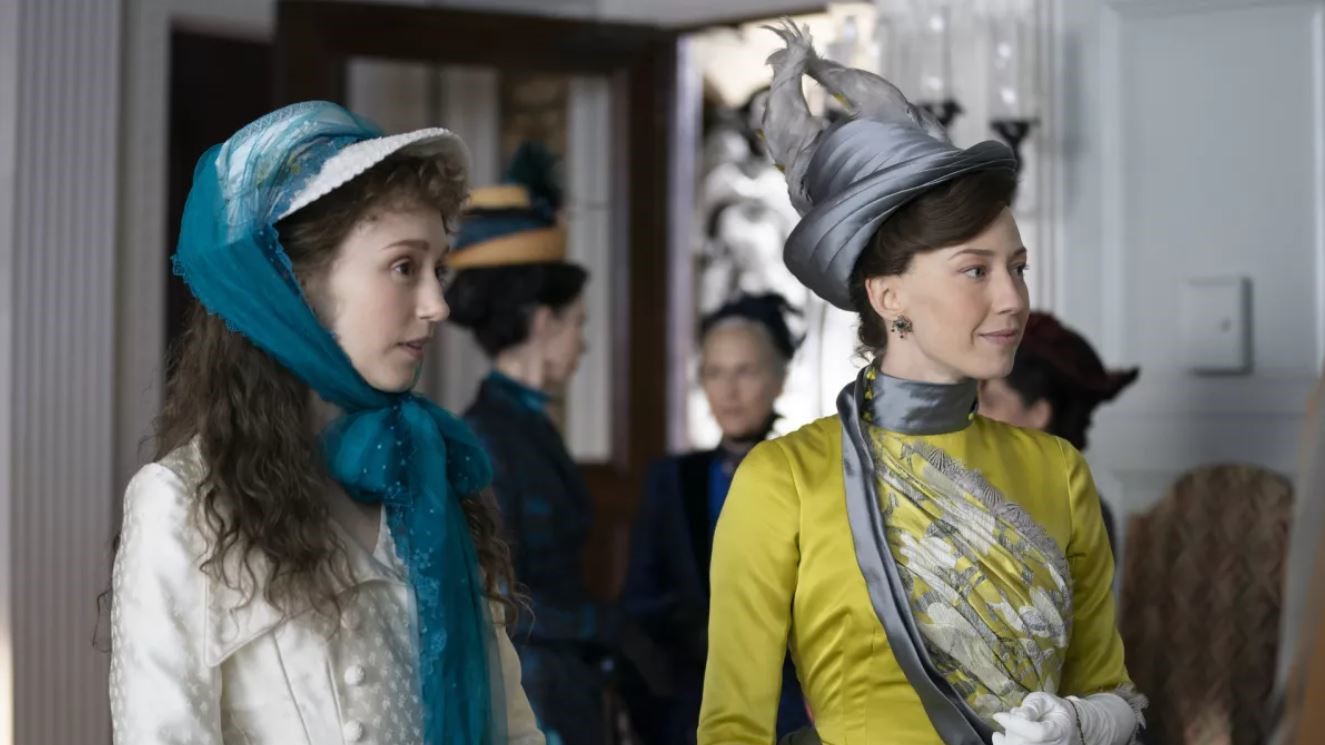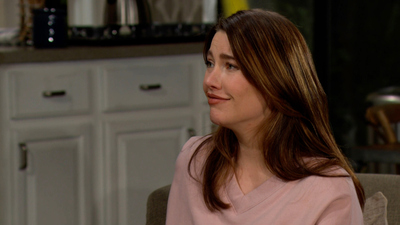What to Watch Verdict
This ticks so many historical drama boxes with a few surprises; a promising start.
Pros
- +
The sheer scale and attention to detail
- +
The cast
- +
Mixing recognizable names amid the fictional families
- +
Some intrigue already
- +
The Russell marriage
Cons
- -
Hopefully Peggy won't be reduced to the best friend role
- -
Marian is seemingly the most naive person alive, which is rather forced
- -
The audience is hit over the head with some of the themes
This post contains spoilers for The Gilded Age season 1 episode 1.
The grand scale of The Gilded Age, HBO's new period drama, is evident from the opening sequence, taking the viewer from the sheep grazing in Central Park to the plush homes that line the fancy Fifth Avenue location. This premiere episode is bolstered by strong performances, visuals and an eye on grabbing the historical drama crown.
New York, 1882, reads the helpful graphic — the Gilded Age of the title is in full force. It was a time of great prosperity that saw a new group rise to power amid a booming railroad business and innovation. Manhattan’s elite suddenly found themselves jostling for space alongside those hoping to join their social scene with checkbook in hand.
Created by Julian Fellowes, this lavish production taps into similar themes as his hit TV series Downton Abbey; no doubt HBO is hoping for this level of success. These settings are separated by an ocean (and several decades), but it is immediately apparent why Fellowes was drawn to this period, and “Never the New” indicates the social battle to come.
Clocking in at 80 minutes, the first outing takes its time in showing how new neighbors Anges Van Rhijn (Christine Baranski) and her spinster sister Ada Brook (Cynthia Nixon) are opposed to the arrival of the ambitious Russells: a family who doesn’t have roots in early New York and hasn’t even built a home that matches the other properties on the avenue. The old versus new money battle lines are drawn in in the opening moments and reiterated throughout.
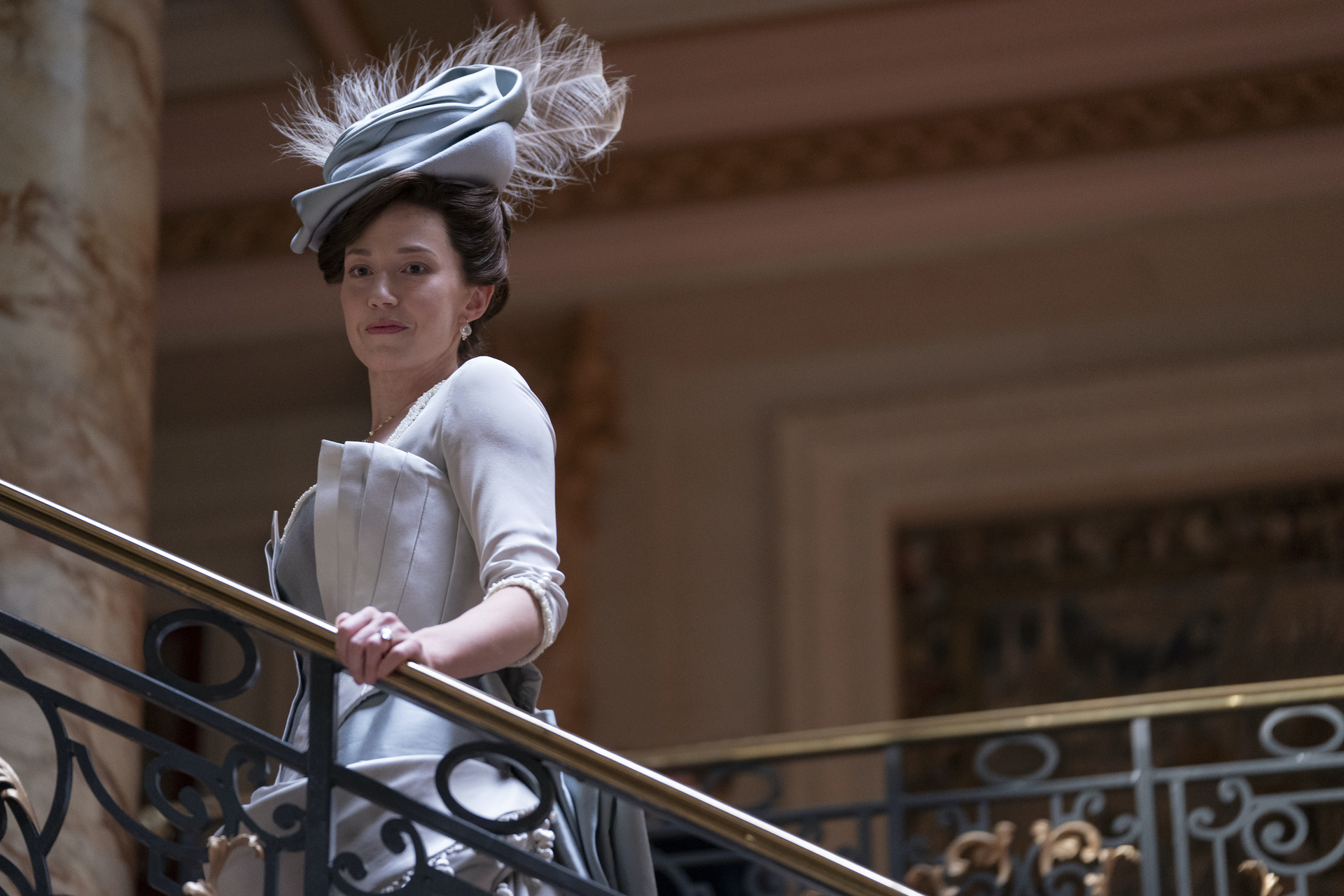
Bertha Russell (Carrie Coon) is set on joining the exclusive Manhattan scene, but it doesn’t matter how extensive her closet is or how much money her husband makes, because tastemakers like Agnes are set in their snobby ways.
The Russells are not the only newcomers, but Agnes and Ada’s niece Marian Brook (Louisa Jacobson) gets a warmer welcome. Marian is a stranger to the city, her aunts and the rules that dictate who she can talk to and events she shouldn’t attend. A classic fish-out-of-water story unfolds before our eyes and Marian is the clear audience entry point into a world that judges a person by their family name and nothing else.
On her way to the big city from rural Pennsylvania where she lived with her father before he died, Marian’s naivety is overly emphasized by the incident at the train station that leaves her without the tickets her aunts sent. Her purse is stolen and she has no home to return to and no money to buy a replacement. Not only that, but Marian accidentally rips the dress of Peggy Scott (Denée Benton) during the chaos at the station and ends up turning to this stranger for help. Marian’s sheltered existence apparently means she doesn’t understand why Peggy and the other Black passengers have to wait to board the train, and this comes across as a forced attempt to show Marian is without prejudice — whether related to race or the disgust her Aunt Agnes shows toward new money.
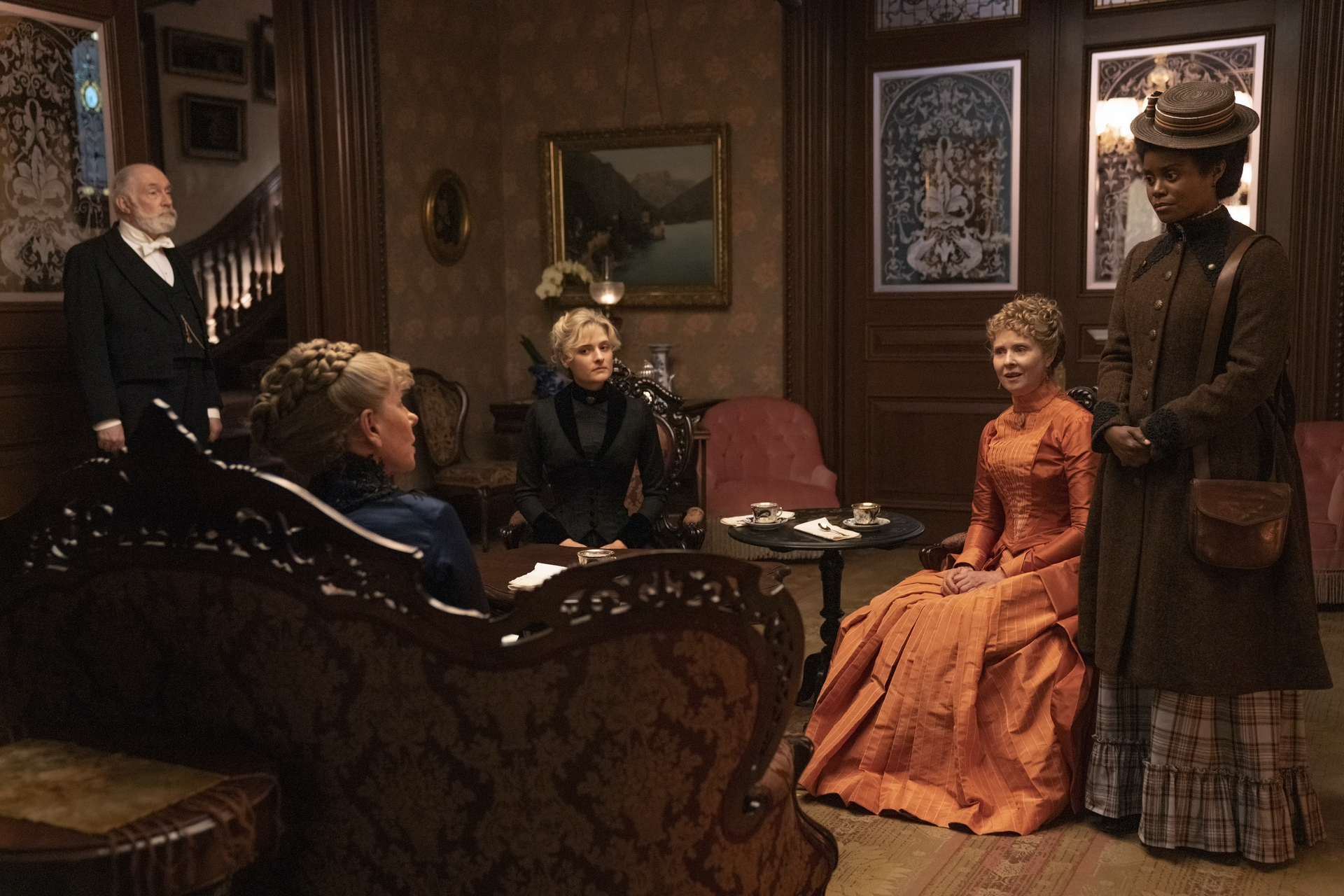
Within the Van Rhijn household, it is the servants who are the most overtly racist toward Peggy after she is given her own room. Agnes is tolerant but simply because Peggy has expert penmanship and is well educated — and she has a lot of correspondence to catch up with. A storm offers an opportunity for Peggy to be welcomed into this world (because the ferry to Brooklyn isn’t running) and reveals her writing ambitions.
Peggy’s meeting with her mother (played by the wonderful Audra McDonald) points to why she doesn’t want to return home. This storyline is far more intriguing than Marian’s entry into society. Marian’s story is one we have seen many times before and I worry that Peggy will be reduced to the "Black best friend" archetype. Peggy aids Marian when she wants to sneak out to the soirée across the street but, alas, she does not get to enjoy the decadent Russell event.
Being an outsider is a recurring theme that is showcased by Bertha’s attempts to win the approval of the Astors, Vanderbilts and her neighbors. Mixing recognizable legacy family names with the fictitious counterparts adds authenticity to the series — although a search of the Russells’ architect Stanford White includes quite the jaw-dropping conclusion. Hearing the name Astor also speaks to how long this moniker has been synonymous with privilege and opulence. “Our future success in New York depends entirely on the support and approval of Mrs. Astor,” is pretty much Bertha’s mantra and so far her persistence is failing to have an impact.
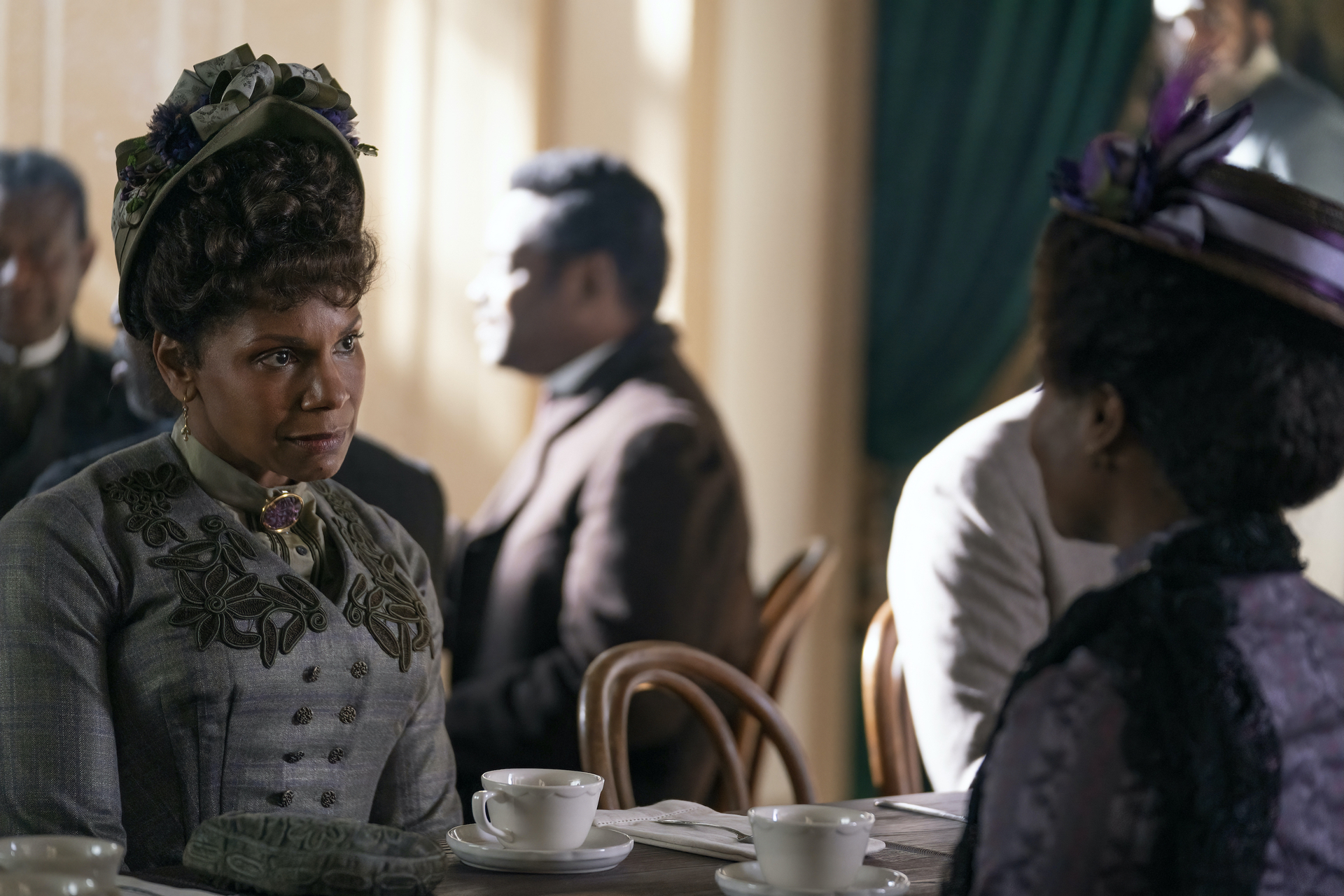
Bertha's ruthless businessman husband, George (Morgan Spector), supports her ambition rather than treat it as tiresome or inconsequential, giving this storyline an edge. Yes, some of those contacts will aid the expansion of his railroad empire, but you also get the sense that he wants his wife to be happy. Their children also play a role in this quest as the likes of socialite Mamie Fish (Ashlie Atkinson) will extend an invite to her son Larry (Harry Richardson) to attend a weekend bash in Newport even though she snubs his mother.
The gulf between those who have lived in New York for centuries and the recent residents are wide, but a charity gathering reveals some are willing to make concessions in return for the wealth these women are connected to. Bertha is not alone in her outsider status, as another woman stands on the periphery, Mrs. Chamberlain’s (Jeanne Tripplehorn). Her backstory remains a mystery for now, but there is definitely something more there than a case of a new money interloper.
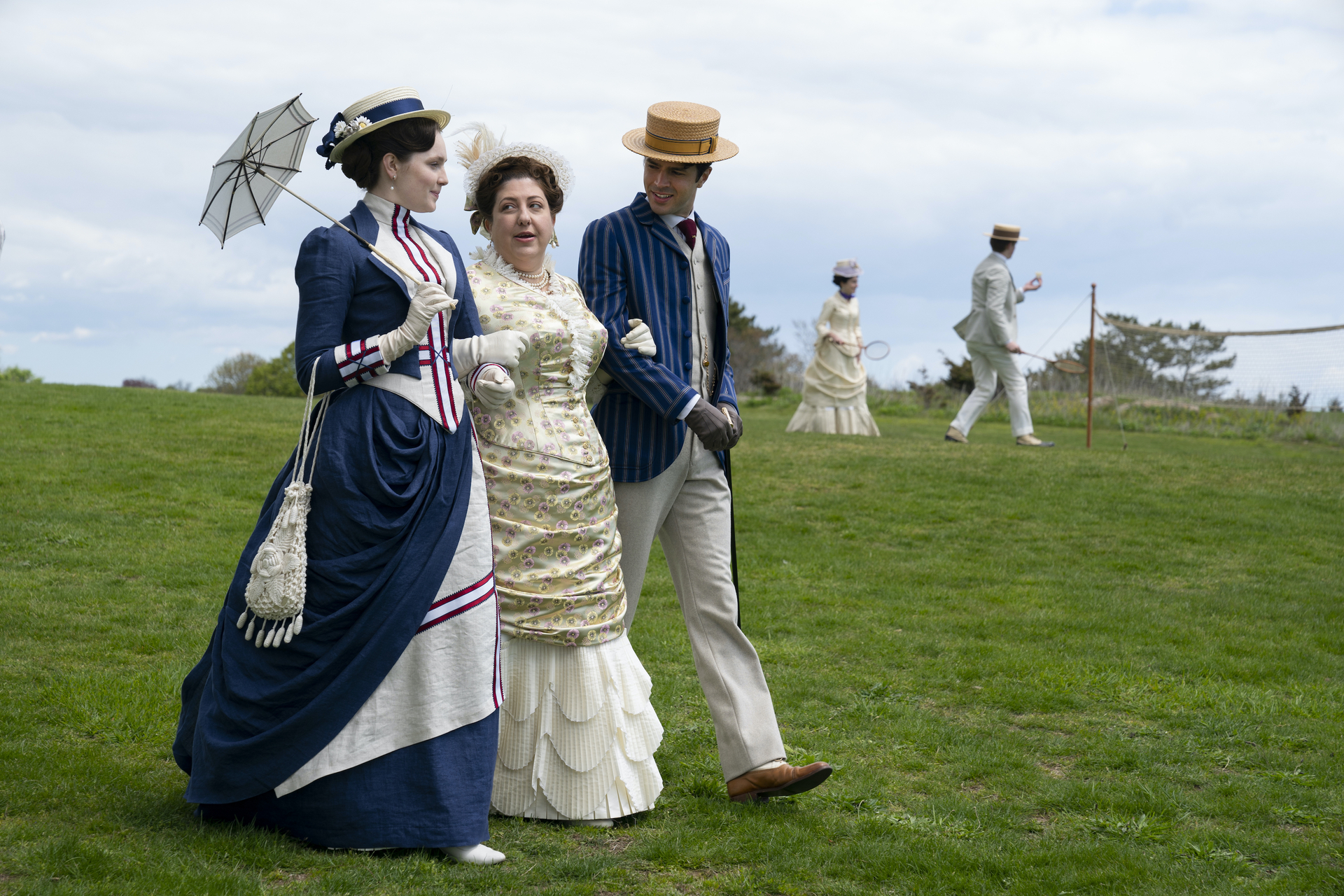
After shows like The Great, Dickinson and Bridgerton offered something new to the historical drama genre, The Gilded Age is more in line with what you would expect from the Downton Abbey creator. This isn’t necessarily to its detriment as everyone from the star-packed cast to production designer Bob Shaw is at the top of their game.
Plus, Bertha might not be part of the social set yet, but her determination in the face of her failed party is exactly the energy required to challenge the ways of the old. The viewer is the clear winner in a face-off between the sublime Carrie Coon and Christine Baranski.
Emma Fraser spends most of her time writing about TV, fashion, and costume design; Dana Scully is the reason she loves a pantsuit. Words can also be found at Vulture, Elle, Primetimer, Collider, Little White Lies, Observer, and Girls on Tops. Emma has a Master’s in Film and Television, started a (defunct) blog that mainly focused on Mad Men in 2010, and has been getting paid to write about TV since 2015. It goes back way further as she got her big start making observations in her diary about My So-Called Life’s Angela Chase (and her style) at 14.
